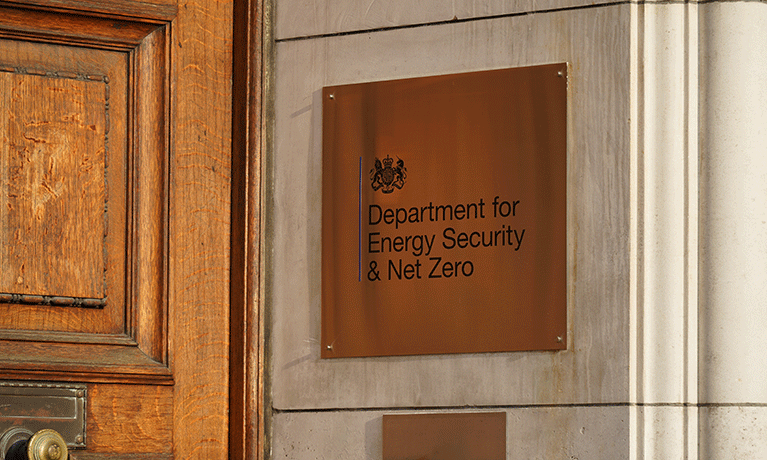By Professor David Bek and Professor Lyndon Simkin, Centre for Business in Society
Embroiled in controversy and headlines surrounding the curtailment of the HS2 rail infrastructure project, the recent Conservative Party Conference in Manchester witnessed another sharp deviation in Government policy, namely from its much-lauded green agenda for sustainability and addressing climate change. Many of the Government’s previously stated plans and policies were watered down. Following the Prime Minister’s speech, the Observer’s editorial stated[i]:
The view of the independent Climate Change Committee, the statutory body responsible for monitoring progress against the 2050 target, was that the UK was already making insufficient headway before Sunak rolled back some of the government’s commitments last week. There is no question that the substance of what he announced will make achieving net zero harder still. The decision to push back the ban on the sale of new petrol and diesel cars from 2030 to 2035 will slow the transition to electric vehicles. Sunak also announced that a ban on the sale of fossil-fuel boilers from 2035 would be watered down to allow for an unnecessary exemption for about a fifth of homes. Even more significantly, he has scrapped planned regulations that would have required landlords to improve the energy efficiency of rental properties through measures such as insulation.
Fund managers are in shock and businesses are very confused
Bloomberg[ii] reported that fund managers are in “complete shock after Sunak’s green pivot”, with the revised policy posing risks to investors in the UK. And the impact is ramping up. The Times is now reporting that the change in Government policy already is altering companies’ approach to environmental, social and corporate governance (ESG) and their response to the UN SDGs. The paper reports[iii] that firms are “switching focus from sustainability after net zero retreat”, watering down their plans, delaying related investments and channelling their energies elsewhere, and so diminishing the hoped-for benefits from their previously announced plans. This comes on top of research revealing that SMEs are also reining back their sustainability aspirations[iv] faced with economic challenges.
While many plans and consumer trends have fallen by the wayside because of Brexit woes, the Covid pandemic, war in Ukraine, supply chain shortages and the cost-of-living crisis, until now the evidence has been that ESG initiatives have remained intact and indeed in many companies have been scaling up, despite the external pressures they are having to navigate. To have a politically expedient decision jeopardise the UK’s progress, which is already deemed inadequate[v], seems short-sighted at best, with potentially disastrous consequences for future generations and society as a whole.
So where does this leave the UK’s net zero aspirations and are net zero targets in tatters?
Even before these policy rollbacks, climate scientists were critical of the Government’s approach. They pointed out that prior to Sunak’s rollbacks, the UK was already set to miss Paris Agreement commitments on 1.5°C, 2°C and equity.[vi] Yet time is short, our climate does not respond to rhetoric but to changes in the chemistry of the atmosphere. Based on current trends and commitments, the global carbon budget for limiting global temperature increases to 1.5°C is likely to be exceeded by around 2030.
The implications of these trends are becoming increasingly evident: the earth is drowning and burning! 2023 has been marked by a sequence of climatic records for the hottest, wettest, driest months experienced by different regions of the world.[vii] Such records present as weather events in the form of brutal heatwaves and floods. Whilst extreme events are normal features of weather and climate variations, their frequency and intensity are increasing, presaging an alarming future for society and business.
Businesses need certainty and consistency not knee-jerk change
The business community is acutely aware of the imperative to respond to climate change. Long term investments into more sustainable technologies and practices are required and business needs support if effective transitions are to be delivered. However, business strategies need to be devised and executed within the context of a clear and consistent regulatory framework. One which justifies corporates’ investments in changing practices, production, distribution and use of resources.
The surprise rollback by the Prime Minister sets a tone of uncertainty and unpredictability, which businesses struggle to pilot. Flip-flopping driven by knee-jerk political posturing creates an unstable situation within which to make the necessary commitments and investments.[viii] Furthermore, setting Britain apart from continental Europe’s policy trajectory renders Britain less attractive as a destination for investment for the green-tinged industries which will increasingly dominate in the coming decades.
If politicians won’t lead, businesses must press on with the changes required
Even if a new government is elected with a strong mandate in 2024, it will take time for progressive policies to be introduced and enshrined in legislation and further time for business to develop trust in the commitment and stability of that new government. But time is a commodity that we simply do not have. Businesses need to be bold and use their considerable lobbying power to persuade the current government to dispense with regressive ideas and remain committed to change. Whilst businesses themselves need to lead the way and respond to the realities of the science in their decision making going forward. Otherwise, to echo a previous blog in this series[ix], the seemingly inexorable ‘highway to climate hell’[x] will move another step closer.
Through
understanding the impact of organisations’ activities, behaviours and policies,
the Centre for Business in Society at Coventry University seeks to promote responsibility,
to change behaviours, and to achieve better outcomes for economies, societies
and the individual.
[i] https://www.theguardian.com/commentisfree/2023/sep/23/observer-view-rishi-sunaks-cynical-backtracking-on-climate-will-be-to-no-electoral-avail#:~:text=The%20decision%20to%20push%20back,about%20a%20fifth%20of%20homes.
[ii] https://www.bloomberg.com/news/articles/2023-09-25/green-fund-managers-in-complete-shock-after-sunak-backtracks?leadSource=uverify%20wall.
[iii] https://www.thetimes.co.uk/article/large-firms-switch-focus-from-sustainability-after-net-zero-retreat-vpmc9fbs2.
[iv] https://www.natwest.com/business/insights/sustainability/climate/sustainable-tracker-shows-rising-costs-affect-climate-ambitions.html
[v] https://www.theccc.org.uk/2022/06/29/current-programmes-will-not-deliver-net-zero/.
[vi] https://climateuncensored.com/some-physics-for-the-pm-and-journalists-on-the-uks-weak-and-weakening-climate-record-and-prospects/
[vii] https://climate.copernicus.eu/summer-2023-hottest-record#:~:text=August%202023%20was%20the%20warmest,previous%20warmest%20August%20in%202016.
[viii] https://www.economist.com/britain/2023/09/20/rishi-sunaks-anti-green-turn-on-britains-climate-targets
[ix] https://blogs.coventry.ac.uk/researchblog/pyrrhic-victories-set-us-on-course-for-the-highway-to-climate-hell-cop27/
[x] https://www.forbes.com/sites/carlieporterfield/2022/11/07/highway-to-climate-hell-officials-issue-stern-warnings-at-cop27-summit/?ss=sustainability&sh=1e7782384f23&utm_source=newsletter&utm_medium=email&utm_campaign=currentclimate&cdlcid=6253ea436e1a1d1211a65772




Comments are disabled